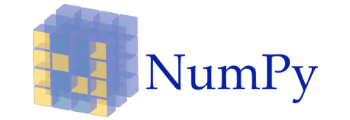
Master of Science in Deep Learning and Artificial Intelligence
2 years degree program approved by UGC. Program managed by REVA Academy for Corporate Excellence in collaboration with CloudxLab
Apply Now Download Brochure
Enquire: +1-412-568-3901
Starts From
Duration
Format
Degree awarded by
Artificial intelligence has permeated into every sphere of life, bringing smartness and efficiency in all our endeavours. AI today is seen as the panacea and accelerator for solving many of the nagging human problems. REVA Academy for Corporate Excellence and CloudxLab proudly present a unique Masters’ program loaded with experiential learning in a gamified environment with real-time projects solving life problems with AI.
Use machine learning and analytics to study asset prices and movement. Propose strategies that can be automated and run automatically to maximise profits.
Traffic rule Violation Detection using Computer Vision.
Bad driving behaviour makes roads unsafe and also increases pollution. Study how to use IOT data to detect bad driving and propose corrective actions to reduce pollution and save fuel.
Building suitable investment portfolios using genetic algorithm and particle swarm optimization. Based on these optimization techniques, one can find out the best selection of stocks for the portfolio.
Heroku is a cloud platform for the deployment and management purposes of web applications. You will learn how to deploy Deep Learning based Flask web app on Heroku.
Learn how to over-sample the dataset with imbalanced classes using the SMOTE technique and how to use the thus obtained data to build a fraudulent transaction classifier.
Predict stock market closing prices for a firm using GRU, a state-of-art deep learning algorithm for sequential data, with Keras and Python.
Use TensorFlow 2 to generate an image that is an artistic blend of a content image and style image using Neural Style Transfer.
Using Computer Vision to Detect Number Plates on Vehicles.
Identify person from digital image or video.
Project using OpenGym on Reinforcement Learning.
Learn how to deploy a machine learning model as a web application using the Flask framework.
Learn how to read a pre-trained TensorFlow model for object detection using OpenCV.
Learn how to access the pre-trained models(here we get pre-trained ResNet model) from Keras of TensorFlow 2 to classify images.
As you know, the Google photos app has stunning automatic features like video making, panorama stitching, collage making, and many more. In this project, we will understand how to make a panorama stitching using OpenCV with Python.
Apply the idea of Transfer Learning to build an image classifier with Tensorflow2, and use it to predict the class of an input image - whether it is a cat or a non-cat.
In this project we will build a machine learning model to predict housing prices. We will learn various data manipulation, visualization and cleaning techniques using various libraries of Python like Pandas, Scikit-Learn and Matplotlib.
The MNIST dataset is considered as "Hello World!" of Machine Learning. Write your first classification logic. Starting with Binary Classification learn Multiclass, Multilabel, Multi-output classification and different error analysis techniques.
Build a model that takes a noisy image as an input and outputs the clean image.
Build a model to classify email as spam or ham. First, download examples of spam and ham from Apache SpamAssassin’s public datasets and then train a model to classify email.
The sinking of the RMS Titanic is one of the most infamous shipwrecks in history. In this project, you build a model to predict which passengers survived the tragedy.
This project aims to impart the knowledge of how to access the pre-trained models from TensorFlow 2, and appreciate its powerful classification capacity by making the model predict the class of an input image.
We will train a KNN classifier to predict MNIST images from their noisy version.
Build a CNN from scratch to classify apparel data using Tensorflow2, Matplotlib and Python.
Create a sentiment analysis model with the IMDB dataset using TensorFlow 2.
Build a basic neural network to classify if a given image is of cat or not using transfer learning technique with Python and Keras.
Use Python and Numpy to build a Logistic Regression Classifier from scratch, and apply it to predict the class of an input image - whether it is a cat or a non-cat.
Use Python and Tensorflow 2 Keras to build a dense deep neural network classifier to predict the classes of flowers.
Build a model to classify apparels into various categories in Fashion MNIST dataset.
Please note that there is an additional 5% off for one-time payment
“After a long gap in my IT career, I was looking for a program that is globally recognized and has good demand in the market, that’s how I got to know about REVA University and the M. Tech program in Cyber Security. After joining this course, there is no looking back for me. The program is very engaging in incorporating the latest technology and process. All the mentors we had are from the industry and provided us with skills what the industry needs and demands today.”
IT Infrastructure Architect- IBM India Pvt. Ltd
Security Engineer-SLK Software
“I started my Information journey almost a decade ago in cybersecurity operations/engineering role and moved across the security domains covering security implementation, design, monitoring, testing, and learning from Industry Gurus, which enabled me to anchor a CISO role. The key components involved in achieving this leadership role include the focus on structured learning and the Master’s program of RACE, REVA University.”
M. Tech in Cybersecurity
CISO - Paytm Money
“Being a program/project manager for past 7 years and with more than 9 years of experience in technologies like Java, .net, DevOps, I got associated with REVA for MBA (Artificial intelligence). I have learnt from classroom sessions with many industry leaders and got the exposure in real-time business understanding in AI. The hands-on sessions at RACE helped me a lot in exploring new opportunities in Data Science and Artificial intelligence world.”
Senior Project Manager for Data Science, L & T Infotech
MBA in Business Analytics, 2018-2020 Batch
“The program curriculum combines GRC/ Framework Models best fitting for specific enterprises, practical sessions demonstrating OWASPs Top 10 vulnerabilities and mitigations of the same with latest technical controls, and steps towards Vulnerability Assessment and Penetration Testing. Most importantly, the technical discussions/debates among the peers, who have exceptional experience in various fields helped to learn and grow expertise in this upcoming domain."
Network Development Engineer in Amazon
M. Tech in Cybersecurity, Batch of 2018-2020
“I’m very grateful and proud to be part of the MBA in Business Analytics program at RACE, 2019-2021 Batch. The credit goes to RACE mentors and my batch mates. Still, a long way to go to learn and improve my skills”.
Manager AI/ML at Faurecia
MBA in Business Analytics, Batch of 2019-2021
“The program added value to my experience in Data Science and Business Analytics domain as the program allowed me to solve real-life problems using machine learning models and data science techniques.”
VP- Data Scientist, Swiss Re Institute
MBA in Business Analytics, Batch of 2018-2020
11 Months Online Program
08 Months Online Program
In recent years, Deep learning and artificial intelligence domains are showing rapid growth. The cornerstone of the two-year Master’s program in Deep Learning and Artificial Intelligence is the sponsored projects in association with organizations that have set new benchmarks in AI implementation. This specialization is designed for those who want to gain hands-on experience in solving real-life problems using big data, machine learning and deep learning. Hence, enrolling to M.Sc. in Deep Learning and Artificial Intelligence program of REVA Academy for Corporate Excellence, REVA University in association with CloudxLab will take your career to the next level.
B. Tech/BE in any engineering stream, BCA/B.Sc. in IT/CS/Electronics, B.Com/BBA/MBA with Computer Applications (must have studied Mathematics or Statistics at +2 level), BA in Economics with Mathematics or Statistics as one of the subjects with 50% marks (45% in case of candidates belonging to SC/ST) in aggregate from any recognized university/institution and 2 years of relevant work experience are eligible to apply.
Our selection process for the program includes entrance exam and personal interview. Only qualified candidates are permitted to take the entrance exam and attend the subsequent personal interview.
You will be learning Software Engineering for AI, Deep Learning, Fundamentals, and Advanced Machine Learning, Natural Language Processing, Sequence Modeling, Generative Adversarial Networks, Reinforcement Learning, Recommendation Engine, Computer Vision, etc., during the program
M.Sc. in Deep Learning and Artificial Intelligence in association with CloudxLab is offered in a hybrid format, i.e. both online and offline (on-campus) learning.20 hours per semester will be offline classes
The demand for artificial intelligence and deep learning professionals is ever-growing in this technology-driven world. Talented and skilled individuals can change the world by applying AI applications in various domains.
The right to admission is subject to the final document certification by the University as per UGC regulations
The duration of the M.Sc. in Deep Learning and Artificial Intelligence program is 2 years, which consists of 4 semesters.
Yes, it is possible to pay the fees in installments using your convenient payment modes such as online bank transfer, credit/debit card transfer, cheque, Paytm transfer, etc. In the first year, you have to pay 3.8 lakhs in 3 installments of 1.3 lakhs and second year fee will be one lakh. Please note that women candidates with STEM background will get a special discount on the total fee.
According to the academic calendar, admissions to M.Sc. in Deep Learning and Artificial Intelligence will start in April 2021.
Bank Loans are available from ICICI Bank, Axis Bank, and HDFC Bank. Please find details here: http://bit.ly/2Z9dazN
No. If you do not have 2 years of experience in IT/Artificial intelligence domain, then you are not eligible for our artificial intelligence program.
Yes, it is. The M.Sc. in Deep Learning and Artificial Intelligence program is approved by UGC.
RACE or CloudxLab cannot guarantee admission after the application deadline, even though you can contact us for admissions anytime. Once we admit 60 students, we will close the admission for that batch. When the admissions are closed for a particular batch, you can apply only for the next batch. Hence, it is highly recommended to complete the application process as early as possible.
CloudxLab offers a gamified environment where the learners receive a constructive and fun-filled learning environment. By integrating creative design to intuitive apps, CloudxLab creates a seamless and sustainable experiential learning methodology for the learners to succeed in their domain. After finishing this specialization, you will find creative ways to apply your learning to your work like building a robot that can recognize faces or change the path after discovering obstacles on its path.
A candidate admitted to M.Sc. in Deep Learning and Artificial Intelligence can exercise an option to exit with P.G Diploma in Deep Learning and Artificial Intelligence after earning 54 credits successfully as specified in the Scheme of Instruction. However, such candidates can directly enter into the third semester (2nd year) as per the regulations.
Yes, once you’ve joined the program, you will get the login details to access the Learning Management System (LMS), where you can find all the learning materials such as pre-readings, assignments, in-class resources, and recorded videos of classroom sessions, additional reading materials, webinars, and other learning resources added as per the requirements.
You have to go through a continuous evaluation process. The candidates will be assessed based on their performance in MCQs, Viva and online/offline tests. The tests consist of objective, programming and subjective questions. All subjects will have a proctored online test at the end of that course. The pass criteria will require going through all recorded materials, completion of assignments and guided projects.
Upon the completion, you will master relevant tools, industry skills, and industry best practices. Our program enables you to achieve professional and leadership goals.
Yes, we do offer placement assistance that includes career guidance, resume building tips and mock interviews. Each participant will receive staunch support from the industry mentors, who also direct you through various placement opportunities within the industry. Above all, we are partnered with leading MNC’s that offer placement opportunities to our participants.





























